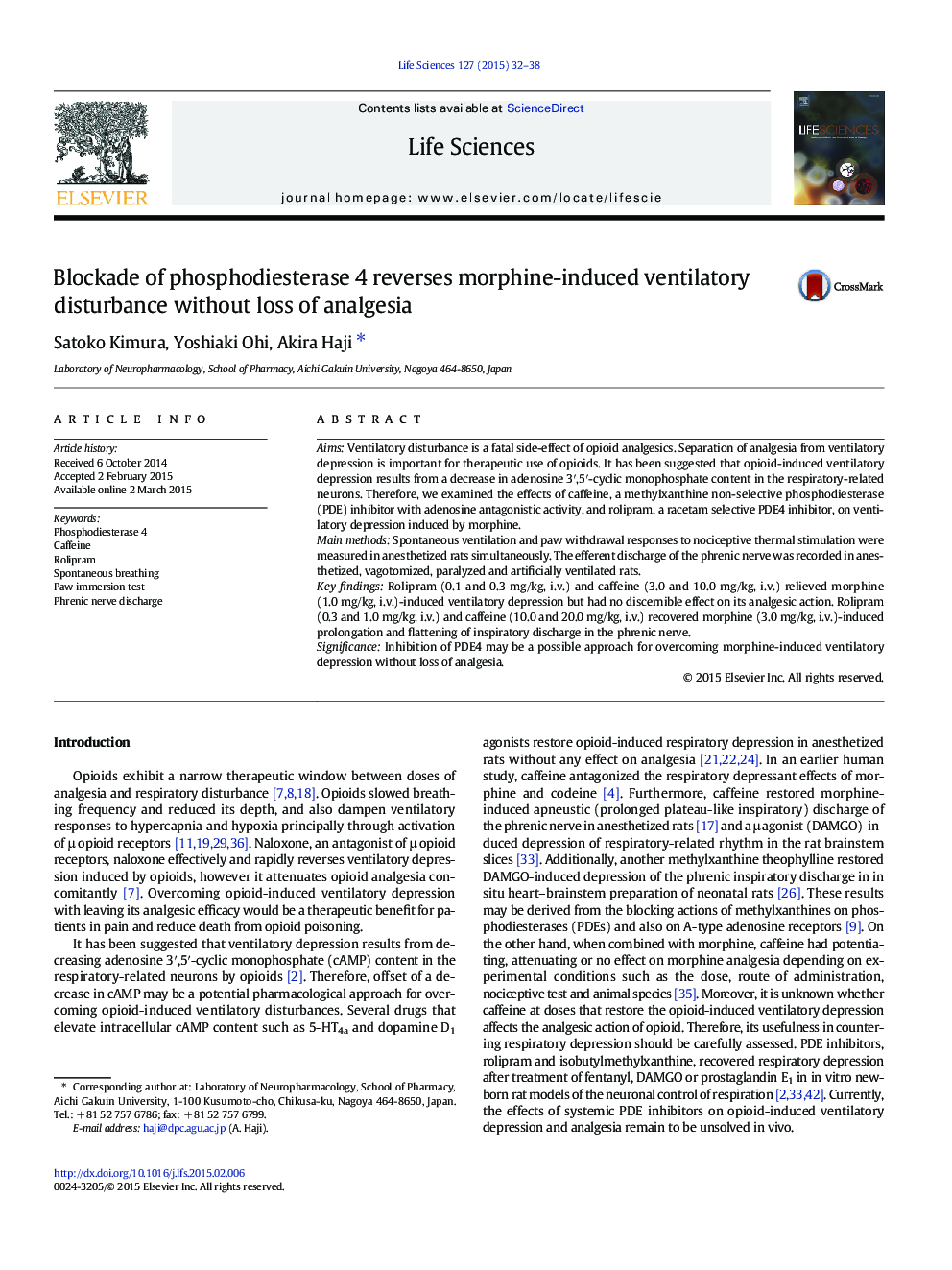| کد مقاله | کد نشریه | سال انتشار | مقاله انگلیسی | نسخه تمام متن |
|---|---|---|---|---|
| 5841772 | 1560601 | 2015 | 7 صفحه PDF | دانلود رایگان |
AimsVentilatory disturbance is a fatal side-effect of opioid analgesics. Separation of analgesia from ventilatory depression is important for therapeutic use of opioids. It has been suggested that opioid-induced ventilatory depression results from a decrease in adenosine 3â²,5â²-cyclic monophosphate content in the respiratory-related neurons. Therefore, we examined the effects of caffeine, a methylxanthine non-selective phosphodiesterase (PDE) inhibitor with adenosine antagonistic activity, and rolipram, a racetam selective PDE4 inhibitor, on ventilatory depression induced by morphine.Main methodsSpontaneous ventilation and paw withdrawal responses to nociceptive thermal stimulation were measured in anesthetized rats simultaneously. The efferent discharge of the phrenic nerve was recorded in anesthetized, vagotomized, paralyzed and artificially ventilated rats.Key findingsRolipram (0.1 and 0.3Â mg/kg, i.v.) and caffeine (3.0 and 10.0Â mg/kg, i.v.) relieved morphine (1.0Â mg/kg, i.v.)-induced ventilatory depression but had no discernible effect on its analgesic action. Rolipram (0.3 and 1.0Â mg/kg, i.v.) and caffeine (10.0 and 20.0Â mg/kg, i.v.) recovered morphine (3.0Â mg/kg, i.v.)-induced prolongation and flattening of inspiratory discharge in the phrenic nerve.SignificanceInhibition of PDE4 may be a possible approach for overcoming morphine-induced ventilatory depression without loss of analgesia.
Journal: Life Sciences - Volume 127, 15 April 2015, Pages 32-38
